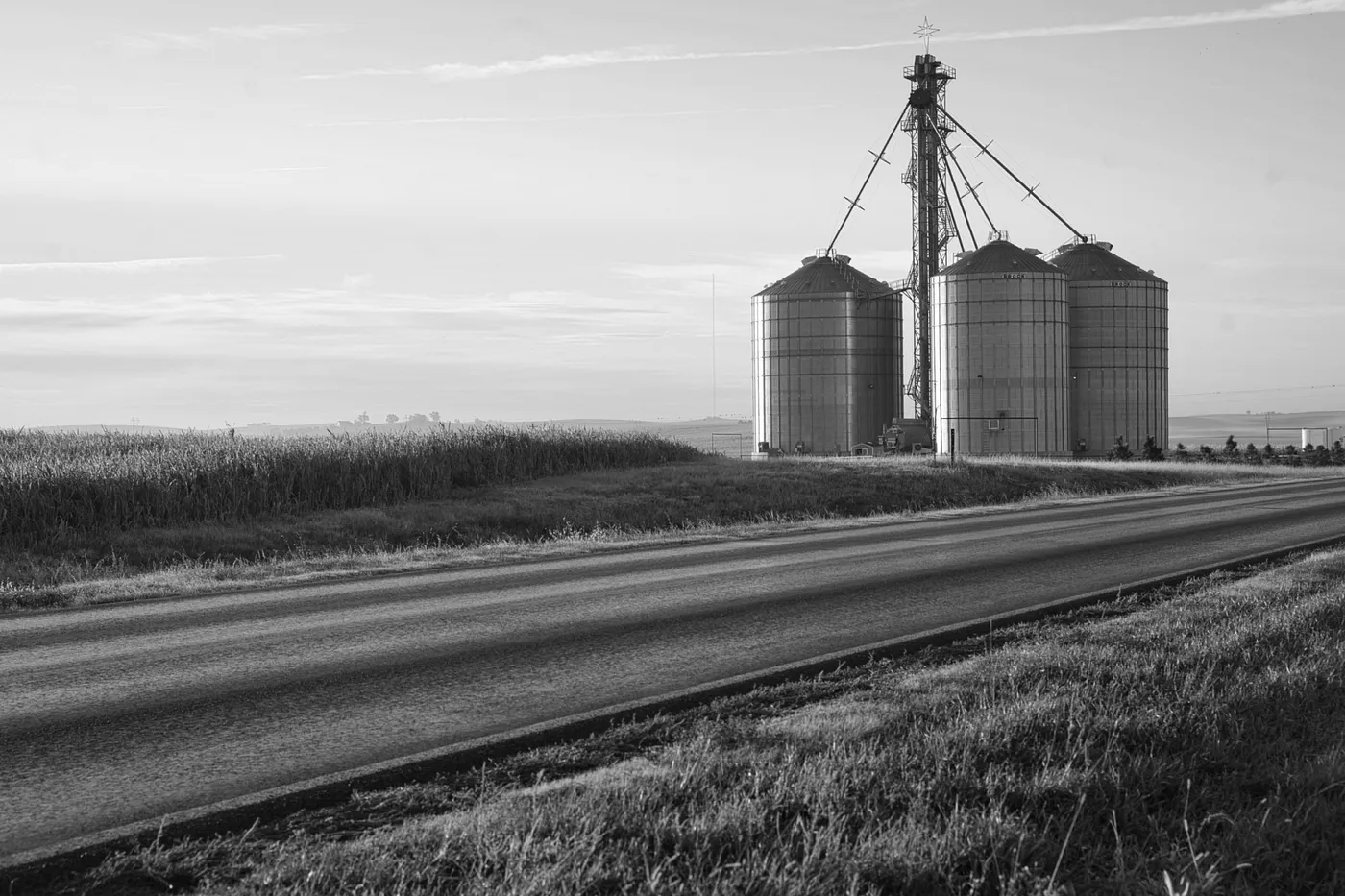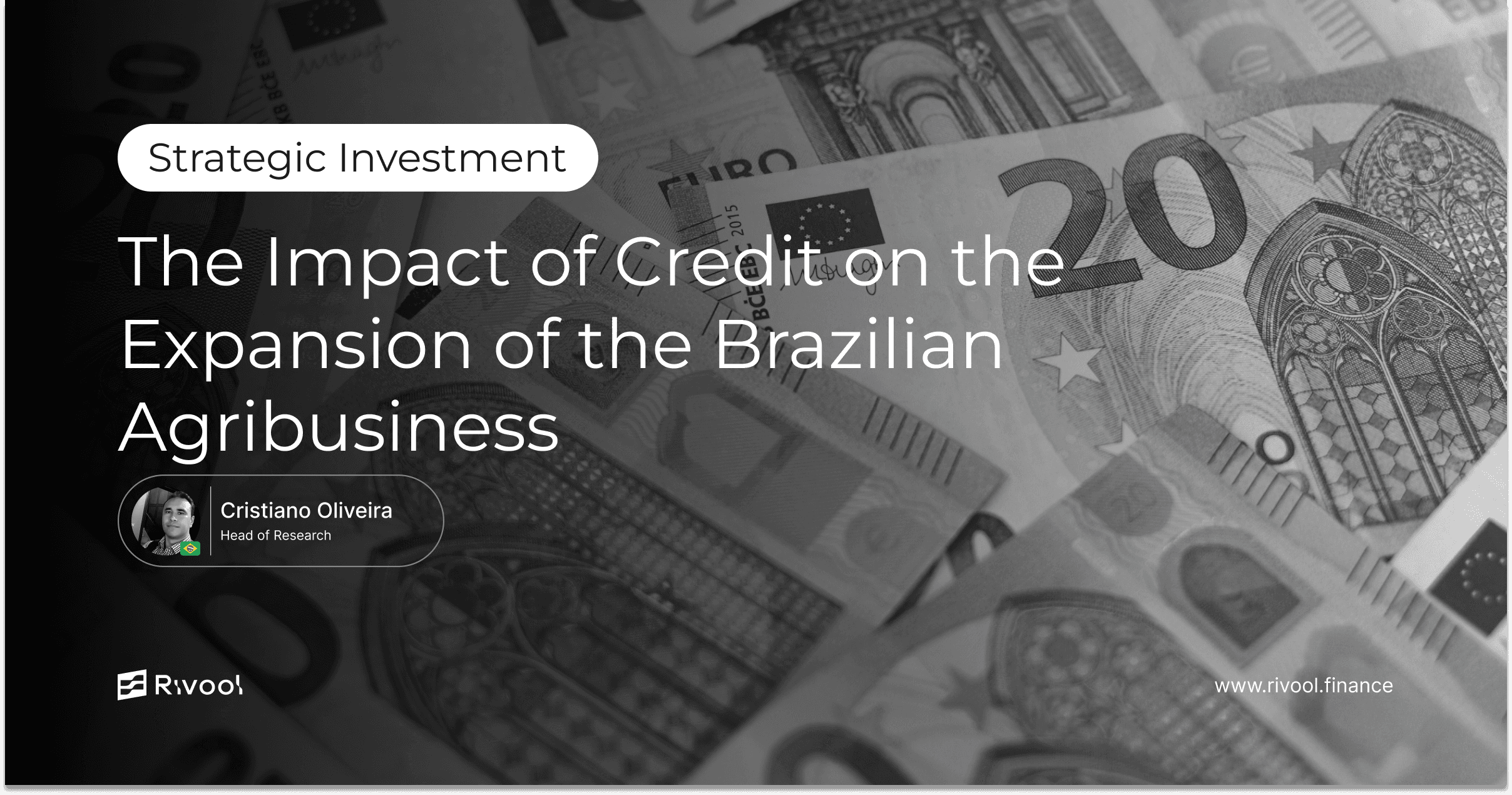Posted on April 14, 2024
Share:

The Brazilian agribusiness, the main driver of the country’s economy, faces a paradox of growth and challenges. Its continuous expansion, responsible
https-medium-com-rivool-finance-strategic-investment-the-impact-of-credit-on-the-expansion-of-the-brazilian-agribusiness-6156c0f94121
The Impact of Credit on the Expansion of the Brazilian Agribusiness
The Brazilian agribusiness, the main driver of the country’s economy, faces a paradox of growth and challenges. Its continuous expansion, responsible for a significant portion of the national GDP, intrinsically depends on investments and constant innovation. To sustain this continuous growth, the sector needs comprehensive resources to finance all stages of the production process, including costs, marketing, industrialization, and investments in mechanization and storage. In this context, rural credit emerges as an indispensable tool, fostering technological development and adopting sustainable practices. However, the limitation of public resources and the emerging need for private credit point to a complex reality where financial accessibility determines the pace of progress.
Traditionally, rural credit resources largely came from the public budget, through constitutional funds, and mainly from directed resources of checking deposits and rural savings. However, public budgetary constraints and the limitations of available resources in traditional financial institutions began to pose serious challenges to the sector’s dynamism and expansion capacity. Faced with the growing demand for agricultural products and the need for more efficient and technologically advanced agricultural production, the necessity to diversify financing sources became evident, significantly enhancing the role of private credit in agribusiness.

In response to this challenge, Brazil witnessed implementing fundamental legislative changes, enacting Law 13.986/2020 and Law 14.421/2022, respectively, Agro 1 and Agro 2. These laws represent a milestone in the history of rural credit in the country, establishing a new paradigm in agribusiness financing. The impact of these laws on Brazilian agribusiness has been significant, enabling the sector to continue its expansion trajectory aligned with the growth of global demand.
Regarding the relationship between credit and the expansion of Brazilian agribusiness, the groundbreaking research conducted by Rivool Finance offers an illuminating perspective on the economic dynamism of Brazilian agribusiness. Through a comprehensive analysis covering 4,618 municipalities from 2013 to 2021, the study utilized a sophisticated econometric methodology, specifically estimating a Vector Autoregression model with panel data, to investigate the relationship between credit expansion and agricultural production growth. The results obtained provide a previously unseen perspective, showing that credit expansion not only accompanies but also temporally precedes the increase in production in the analyzed municipalities. According to the analysis, a 10% increase in the total volume of credit is associated with a significant increase of about 1.8% in agribusiness production over a three-year period, clearly demonstrating the stimulating effect of credit on the sector.

Furthermore, the study provides a detailed analysis of the different types of credit (operational, investment, marketing, and industrialization), revealing important insights about the specific impact of each type of credit on agricultural production. In this regard, it is important to highlight that credit aimed at investment was identified as the most influential among the types analyzed, accounting for approximately 40% of the observed growth in agricultural production.
This role becomes especially clear when we observe, for example, Brazil’s lag in terms of mechanization and irrigation. In Brazil, there is only one tractor per 100 hectares. Only 7% of the cultivated area is under irrigation, while in the USA, the ratio is one tractor per 25 hectares, and 17% of the area is irrigated; in the European Union, the figures are even more significant: one tractor per 15 hectares and 15% of the area cultivated with irrigation. Moreover, Brazil faces a critical challenge, with post-harvest losses reaching up to 30% of production due to insufficient storage. According to a study by the Sectoral Chamber for Grain Storage Equipment (CSEAG) of Abimaq, an investment of around BRL 10 billion annually for a decade would be required to eliminate this deficit by 2030. These data not only underline the importance of investment in mechanization, irrigation, and storage as fundamental for advancing the Brazilian agricultural sector but also reinforce the crucial role of investment credit in directing and enhancing progress in these areas.
Thus, the conclusion of this study conducted by Rivool Finance underscores the fundamental importance of investment credit in driving the productive expansion of Brazilian agribusiness, especially private investment credit directed towards strategic areas. This investment emerges not just as a means to leverage agricultural production growth but as an urgent necessity to ensure the sustainability and prosperity of agribusiness in Brazil. It is essential not only for the country to meet both domestic and global food demands but also to position its agribusiness as one of the leaders in efficiency and innovation on the global stage.
Authored by Cristiano Oliveira, Head of Research at Rivool Finance
Tags
Private credit







